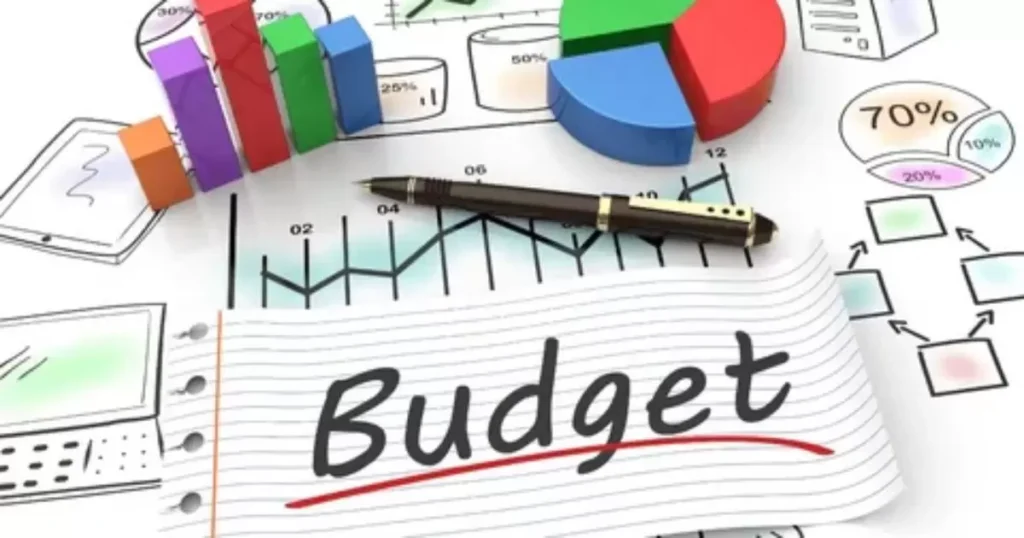Introduction
“Buying a car with a business EIN can offer tax benefits and help build business credit, but it involves more paperwork and higher insurance costs.”
Buying a car with a Business Employer Identification Number (EIN) can be a smart move for business owners. Not only does it help in establishing business credit, but it also provides potential tax benefits and can enhance the professional image of your business.
However, purchasing a vehicle under a business name involves several steps and considerations. This article will guide you through the entire process, from understanding the benefits to finalizing the purchase and managing the vehicle.
Understanding the Benefits of Buying a Car with a Business EIN

Purchasing a car with a business EIN can offer several advantages:
- Tax Deductions: Businesses can potentially deduct vehicle-related expenses, such as depreciation, interest on a car loan, and operating costs.
- Building Business Credit: Financing a vehicle under your business name can help establish and build your business credit profile.
- Separation of Personal and Business Expenses: Keeping vehicle expenses separate can simplify accounting and financial management.
- Professional Image: Having a company vehicle can enhance the professionalism and branding of your business.
Eligibility Requirements for Using a Business EIN
To buy a car with a business EIN, your business must meet certain eligibility requirements:
- Legitimate Business Entity: Your business must be registered and in good standing.
- Valid EIN: You must have a valid EIN issued by the IRS.
- Business Credit History: A good business credit history can improve your chances of obtaining favorable financing terms.
- Proof of Business Operations: Documentation such as business licenses, incorporation documents, and recent financial statements may be required.
Establishing Business Credit
Establishing and maintaining good business credit is crucial for obtaining financing:
- Open Business Credit Accounts: Start by opening business credit cards and accounts with suppliers.
- Pay Bills on Time: Ensure all business bills and credit obligations are paid on time.
- Monitor Credit Reports: Regularly check your business credit reports for accuracy and address any discrepancies.
- Build a Strong Credit Profile: Maintain a healthy credit utilization ratio and a good payment history.
Deciding Between Leasing or Buying
When acquiring a vehicle for your business, you must decide whether to lease or buy:
- Leasing:
- Pros: Lower upfront costs, tax benefits, access to newer models.
- Cons: Mileage limits, no ownership equity, long-term costs can be higher.
- Buying:
- Pros: Full ownership, no mileage limits, potential resale value.
- Cons: Higher initial costs, depreciation, long-term maintenance.
Researching the Right Vehicle for Your Business Needs
Selecting the right vehicle requires careful research:
- Assess Business Needs: Consider the primary use of the vehicle (e.g., deliveries, client visits).
- Evaluate Options: Compare different makes and models that fit your business requirements.
- Consider Fuel Efficiency: Opt for vehicles with better fuel economy to reduce operating costs.
- Check Reliability: Look for vehicles with a reputation for reliability and low maintenance costs.
Budgeting and Financing Options

Careful budgeting and exploring various financing options are essential:
- Determine Budget: Set a realistic budget based on your business finances.
- Explore Financing: Research loans, leases, and other financing options available for businesses.
- Compare Interest Rates: Shop around for the best interest rates and terms.
- Consider Total Cost of Ownership: Include insurance, maintenance, and other costs in your budget.
Finding Reputable Dealers and Sellers
Choosing a reputable dealer or seller ensures a smooth transaction:
- Research Dealers: Look for dealers with good reputations and positive reviews.
- Verify Credentials: Check for proper licensing and business accreditations.
- Seek Recommendations: Ask other business owners for dealer recommendations.
- Negotiate Terms: Be prepared to negotiate the price and terms of the purchase.
Can an RN Start an IV Hydration Business?
Understanding Tax Implications
Understanding the tax implications of buying a car with a business EIN is crucial:
- Tax Deductions: Determine which vehicle-related expenses are deductible.
- Depreciation: Understand how to depreciate the vehicle for tax purposes.
- Consult a Tax Professional: Work with a tax advisor to ensure compliance with tax laws and maximize benefits.
- Keep Accurate Records: Maintain detailed records of all vehicle expenses for tax reporting.
Working with Dealerships and Private Sellers
When working with dealerships and private sellers, consider the following:
- Verify Vehicle History: Obtain a vehicle history report to check for accidents or issues.
- Inspect the Vehicle: Have the vehicle inspected by a trusted mechanic.
- Negotiate Effectively: Be prepared to negotiate the price and terms.
- Understand Warranties: Review any warranties or guarantees offered with the vehicle.
Registering the Vehicle Under the Business Name

Registering the vehicle under your business name involves several steps:
- Gather Documentation: Collect necessary documents, including your business EIN, proof of business, and vehicle title.
- Complete Registration Forms: Fill out the required registration forms with accurate information.
- Pay Fees: Pay any registration and licensing fees.
- Obtain License Plates: Ensure the vehicle has the appropriate business license plates.
Insurance Considerations
Proper insurance coverage is essential for protecting your business vehicle:
- Commercial Auto Insurance: Purchase commercial auto insurance to cover business use of the vehicle.
- Compare Policies: Shop around for policies that offer the best coverage and rates.
- Understand Coverage: Ensure the policy covers liability, collision, comprehensive, and other necessary protections.
- Review Regularly: Periodically review and update your insurance coverage as needed.
Conclusion and Final Tips
Buying a car with a business EIN can be a smart and strategic decision for many business owners. It offers numerous benefits, including tax deductions, building business credit, and enhancing your professional image.
However, it’s important to thoroughly understand the process, from establishing business credit to finalizing the purchase and managing the vehicle.
By carefully considering your options, budgeting wisely, and working with reputable dealers and professionals, you can make a well-informed decision that benefits your business.
Pros and Cons
| Pros | Cons |
| Potential Tax Benefits: Deduct vehicle-related expenses, such as depreciation and interest on car loans. | Additional Paperwork: Requires more documentation and compliance with regulations. |
| Builds Business Credit: Financing under the business name helps establish and build business credit. | Potential Higher Insurance Costs: Commercial auto insurance can be more expensive. |
| Enhances Professional Image: Having a company vehicle can improve the business’s professional appearance. | Responsibility for Maintenance: The business is responsible for all vehicle maintenance and repairs. |
| Separation of Personal and Business Expenses: Simplifies accounting and financial management. | Initial Costs: Higher upfront costs for purchasing the vehicle. |
| Ownership and Equity (if buying): Full ownership of the vehicle and potential resale value. | Depreciation: The vehicle will depreciate over time, reducing its value. |
Answer to key Question
- Can I buy any type of car with a business EIN?
- Yes, you can buy any type of car that meets your business needs, whether it’s a sedan, truck, or van. However, ensure it aligns with your business purposes and budget.
- How can I build business credit to finance a vehicle?
- Start by opening business credit accounts, paying bills on time, monitoring your credit reports, and maintaining a strong credit profile.
- What are the tax benefits of buying a car with a business EIN?
- Tax benefits may include deductions for depreciation, interest on a car loan, and operating costs. Consult a tax professional for specific advice.
- Is it better to lease or buy a car for my business?
- It depends on your business needs and financial situation. Leasing can have lower upfront costs, while buying provides ownership and potential resale value.
- What should I consider when choosing a vehicle for my business?
- Consider the vehicle’s primary use, fuel efficiency, reliability, and total cost of ownership. Ensure it meets your business requirements and budget.
Budgeting and Financing Options
| Budgeting Considerations | Details |
| Determine Budget | Set a realistic budget based on business finances |
| Explore Financing Options | Research loans, leases, and other financing options |
| Compare Interest Rates | Shop around for the best interest rates and terms |
| Total Cost of Ownership | Include insurance, maintenance, and other costs in your budget |
Additional Tips
- Maintain Detailed Records: Keep detailed records of all vehicle-related expenses and activities for tax and accounting purposes.
- Regular Maintenance: Ensure the vehicle is regularly maintained to avoid costly repairs and downtime.
- Review Financing Terms: Periodically review your financing terms and explore refinancing options if beneficial.
- Stay Informed: Keep up-to-date with tax laws and regulations related to business vehicles to maximize benefits and ensure compliance.
- Plan for the Future: Consider the long-term needs of your business and plan for future vehicle acquisitions accordingly.
Conclusion
In conclusion, purchasing a vehicle with a business EIN can provide significant advantages for your business, from financial benefits to professional growth. By understanding the process, meeting eligibility requirements, and making informed decisions,
you can successfully acquire a vehicle that meets your business needs. Remember to work with reputable dealers, maintain accurate records, and consult professionals as needed to ensure a smooth and beneficial transaction.

Hi, I’m Amaliyah-Richard! I’m a dedicated author at Skyvoxes. I hold a Bachelor’s degree in Business, and I love writing about all things business. My aim is to make complex business topics easy to understand and accessible for everyone. Whether you’re a seasoned professional or just starting out, I hope my articles provide you with valuable insights and practical advice.










